9 start with T start with T
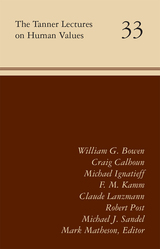
William G. Bowen, “Costs and Productivity in Higher Education” and “Prospects for an Online Fix: Can We Harness Technology in the Service of Our Aspirations?”
Craig Calhoun, “The Problematic Public: Revisiting Dewey, Arendt, and Habermas”
Michael Ignatieff, “Representation and Responsibility: Ethics and Public Office”
F. M. Kamm, “Who Turned the Trolley?” and “How Was the Trolley Turned?”
Claude Lanzmann, “Resurrection”
Robert Post, “Representative Democracy: The Constitutional Theory of Campaign Finance Reform” and “Campaign Finance Reform and the First Amendment”
Michael J. Sandal, “The Moral Economy of Speculation: Gambling, Finance, and the Common Good”
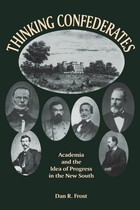
In the wake of their defeat in the Civil War, many southern intellectuals recognized that their institutions had failed to supply antebellum graduates with the skills needed to compete with the North. Thus, educators who had previously served as Confederate officers led an effort to promote academic reform throughout the region.
In Thinking Confederates, Dan R. Frost details how these men set about transforming southern higher education, shifting their schools from a classical orientation to a new emphasis on science and engineering. Although they espoused a reverence for the past, they recognized that the eradication of slavery had been necessary for southern progress, and they upheld an idea of a New South that embraced beliefs both in the “Lost Cause” and in national reconciliation.
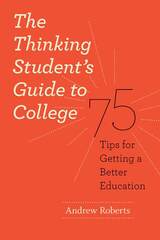
Each fall, thousands of eager freshmen descend on college and university campuses expecting the best education imaginable: inspiring classes taught by top-ranked professors, academic advisors who will guide them to a prestigious job or graduate school, and an environment where learning flourishes outside the classroom as much as it does in lecture halls. Unfortunately, most of these freshmen soon learn that academic life is not what they imagined. Classes are taught by overworked graduate students and adjuncts rather than seasoned faculty members, undergrads receive minimal attention from advisors or administrators, and potentially valuable campus resources remain outside their grasp.
Andrew Roberts’ Thinking Student’s Guide to College helps students take charge of their university experience by providing a blueprint they can follow to achieve their educational goals—whether at public or private schools, large research universities or small liberal arts colleges. An inside look penned by a professor at Northwestern University, this book offers concrete tips on choosing a college, selecting classes, deciding on a major, interacting with faculty, and applying to graduate school. Here, Roberts exposes the secrets of the ivory tower to reveal what motivates professors, where to find loopholes in university bureaucracy, and most importantly, how to get a personalized education. Based on interviews with faculty and cutting-edge educational research, The Thinking Student’s Guide to College is a necessary handbook for students striving to excel academically, creatively, and personally during their undergraduate years.
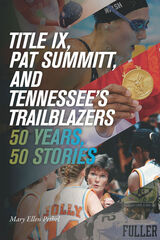
In Title IX, Pat Summitt, and Tennessee’s Trailblazers, Mary Ellen Pethel introduces readers to past and present pioneers—each instrumental to the success of women’s athletics across the state and nation. Through vibrant profiles, Pethel celebrates the lives and careers of household names like Pat Summitt and Candace Parker, as well as equally important forerunners such as Ann Furrow and Teresa Phillips. Through their lived experiences, these fifty individuals laid the foundation for athletic excellence in Tennessee, which in turn shaped the national landscape for women’s sports. The book also provides readers with a fuller understanding of Title IX, as well as a concise history of women’s athletics in the pre- and post-Title IX eras.
With interviewees ranging from age 20 to 93, Pethel artfully combines storytelling with scholarship. Guided by the voices of the athletes, coaches, and administrators, Pethel vividly documents achievement and adversity, wins and losses, and advice for the next generation. This book represents the first statewide compilation of its kind—offering readers a behind-the- scenes perspective of Tennessee women who dedicated their lives to the advancement of sport and gender equality. Readers will delight in Title IX, Pat Summitt, and Tennessee’s Trailblazers: 50 Years, 50 Stories.
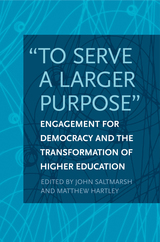
"To Serve a Larger Purpose" calls for the reclamation of the original democratic purposes of civic engagement and examines the requisite transformation of higher education required to achieve it. The contributors to this timely and relevant volume effectively highlight the current practice of civic engagement and point to the institutional change needed to realize its democratic ideals.
Using multiple perspectives, "To Serve a Larger Purpose" explores the democratic processes and purposes that reorient civic engagement to what the editors call "democratic engagement." The norms of democratic engagement are determined by values such as inclusiveness, collaboration, participation, task sharing, and reciprocity in public problem solving and an equality of respect for the knowledge and experience that everyone contributes to education, knowledge generation, and community building. This book shrewdly rethinks the culture of higher education.
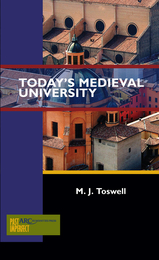
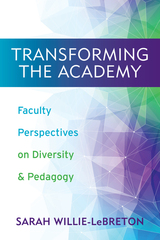
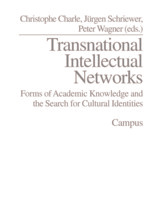
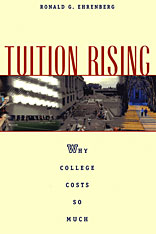
America’s colleges and universities are the best in the world. They are also the most expensive. Tuition has risen faster than the rate of inflation for the past thirty years. There is no indication that this trend will abate.
Ronald G. Ehrenberg explores the causes of this tuition inflation, drawing on his many years as a teacher and researcher of the economics of higher education and as a senior administrator at Cornell University. Using incidents and examples from his own experience, he discusses a wide range of topics including endowment policies, admissions and financial aid policies, the funding of research, tenure and the end of mandatory retirement, information technology, libraries and distance learning, student housing, and intercollegiate athletics.
He shows that colleges and universities, having multiple, relatively independent constituencies, suffer from ineffective central control of their costs. And in a fascinating analysis of their response to the ratings published by magazines such as U.S. News & World Report, he shows how they engage in a dysfunctional competition for students.
In the short run, colleges and universities have little need to worry about rising tuitions, since the number of qualified students applying for entrance is rising even faster. But in the long run, it is not at all clear that the increases can be sustained. Ehrenberg concludes by proposing a set of policies to slow the institutions’ rising tuitions without damaging their quality.
READERS
Browse our collection.
PUBLISHERS
See BiblioVault's publisher services.
STUDENT SERVICES
Files for college accessibility offices.
UChicago Accessibility Resources
home | accessibility | search | about | contact us
BiblioVault ® 2001 - 2024
The University of Chicago Press









